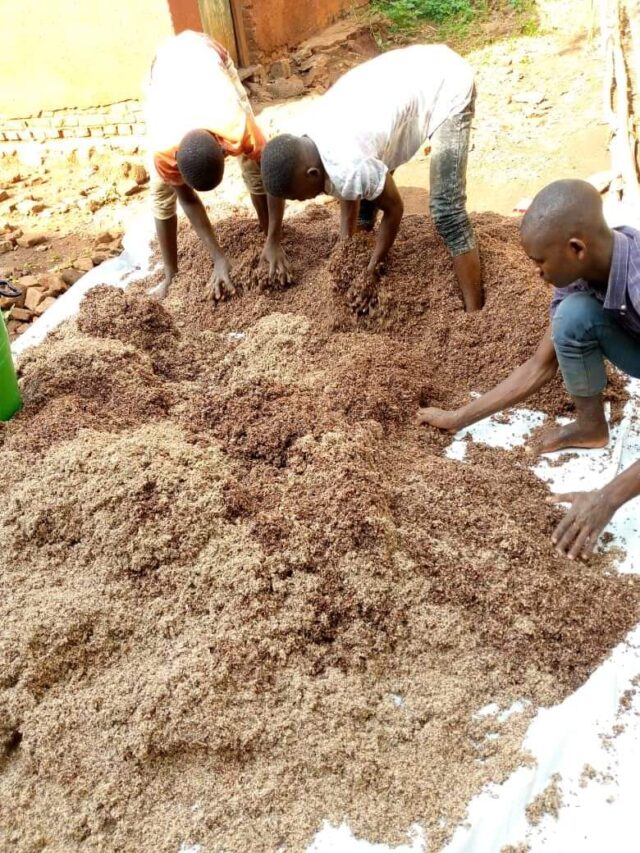
As a result of the Rift Valley epidemic in mid-2022, a ban on animal slaughter was put in place, prompting the Imbo people – who are big fans of meat – to switch to edible mushrooms. This presented an immense opportunity to COPEJC, a cooperative of young people who specialise in mushroom farming.
The Imbo region is traditionally known to be dominated by meat lovers, and they even have a cheerful name for meat – akaboga. Interestingly, in other areas of the country, akaboga refers to vegetables rather than meat. Given this, it is surprising to think that any other food product could sell better than meat in this area. However, the Imbo people have a taste for anything that tastes meaty or provides sauce, which is what paved the way for the success of mushrooms as a substitute for meat.

How did mushrooms come to gain Cibitoke ground ?
Bovine and ovine populations in Burundi as well as those of our neighboring nations, including Rwanda, Ouganda, and Kenya, were simultaneously decimated by the Rift Valley fever epidemic that occurred around mid-2022.
The ministry in charge of agriculture and livestock banned animal slaughter to prevent the virus contaminate people. Given that meat is their primary food, Imbo people were the ones who experienced the greatest direct impact on that measure. As a result, they switch to eating mushrooms.
One man’s loss is another man gain
While breeders and slaughterers were facing the aftermaths of that epidemic, there was COPEJC, a youth cooperative for the production of edible mushrooms which operates in Mugina commune which took advantage of the situation. They were jubilating, coining money since they were able to sell great quantities of their mushrooms. Gradually, Imbo people became aware of that kind of food which is good for human health.

“We started our activities in 2018, but to be honest, it’s only in 2022 that we actually were able to see the potential of success of our cooperative. With the arising of this Rift Valley fever which caused slaughter ban, we encreased our efforts in order to produce a satisfying quantity for our cusormers. Simply, this epidemic helped us to make people discover the appreciable flavor of champignons and it’s fair to note that even when the ban on slaughtering was taken off our sales didn’t decrease. In fact, in Cibitoke, low-income people have permanently taken to consuming mushrooms instead of meat due to its high cost.”, indicates Pierre Nsabimana, the managing director of COPJC.
According to Pierre, there are numerous ways to prepare mushrooms depending on personal preference or skill. For example, they can be prepared as grilled meat, roasted on skewers, small balls,… The cooperative’s goal is to establish a sizable factory that turns mushrooms into products like biscuits and wine.
Mushrooms prices are affordable
Mushroom prices are lower than meat prices. 1kg of mushrooms is BIF 6000 and around BIF 1500 and 2000 per a skewer. Mushrooms are a good meat substitute, according to nutritionists, despite the fact that they do not contain enough protein. They do, however, have many qualities that set them apart from meat, including their abundance in vitamins and minerals like selenium, zinc, and vitamins B1, B2, B5, and B12. Additionally, they lack fat and carbohydrates and are full of antioxidative substances. They are the only vegetable with naturally occurring vitamin D as a result of sunlight exposure.



